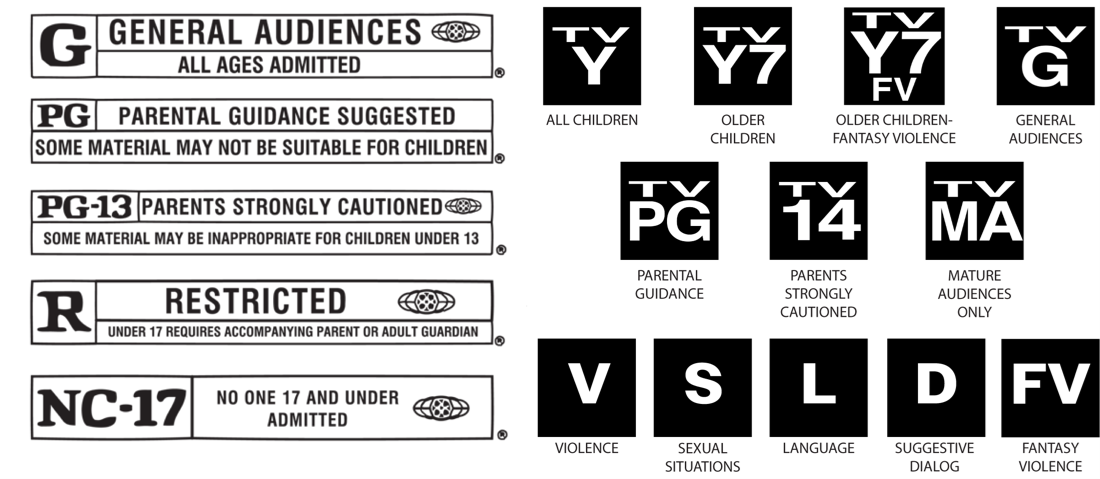LGBTQ+ Content Meets Cultural Challenges
Worldwide, 71 countries criminalize same-sex behavior. Eleven can and do legally put people to death for participating in same-sex acts, and 15 more criminalize transgender, cross-dressing, and impersonation. Those countries include sizable Media and Entertainment (M&E) markets. These regulations are challenging for the creators of LGBTQ+ content who want to release it internationally. How do they balance the tension of complying with local regulations and their desire to reach audiences who may enjoy their work and make money? How do they navigate evolving public sentiment with rigid censorship requirements?
When considering the crossroads of culture and entertainment, change doesn’t come fast or easy. Many countries’ ratings systems are seldom updated. Those with recent updates, such as Hong Kong, tend to expand restrictions. These changes are driven by the increased availability of titles made possible by the explosive growth of VOD and OTT platforms. Consumers now have greater access to titles that local regulators find objectionable. Titles with LGBTQ+ plots or characters are considered particularly offensive in many countries.
Some governments have long considered the LGBTQ+ lifestyle a threat to families and public order. Content creators understand that regulators in these countries will scrutinize LGBTQ+ films or tv shows. What regulators cannot avoid, however, is evolving public sentiment that is more accepting of alternative lifestyles. Twenty-nine countries have legalized same-sex marriage – all within the past 20 years.
The increased audience for LGBTQ+ content is associated with younger people’s greater acceptance of the community than their parents and older generations, the quality of those stories, and the reality that more people are identifying as LGBTQ+. Older generations, having considerable political power and greater adherence to tradition, push for more restrictive regulations. LGBTQ+ content creators must overcome these cultural obstacles to get their work in front of the public. This requires creativity, courage, and vision. While many titles have been the victim of regulatory-mandated edits, some films have managed to walk that fine line and have demonstrated real success in attracting large audiences.
As the industry’s top performance metric, box office success is a sure way to draw regulators’ attention. 2018’s “ Bohemian Rhapsody ” grossed $911M worldwide, won four Academy Awards and 43 other international awards. 2019’s “ Rocketman ” earned $195M, won an Oscar and 20 other awards. The Canadian Broadcast Company’s (CBC) sitcom “Schitt$ Creek” won nine primetime Emmys and 99 other TV awards in its six years in production. Major VOD platforms such as Netflix, Amazon Prime, and Hulu all have LGBTQ+ genre listings in their catalogs, and all major studios produce LGBTQ+ titles. There is a substantial market for LGBTQ+ content, but that doesn’t mean the path for these titles is always clear or easy.
The recent Disney/Pixar film “Onward” was banned in Qatar, Oman, the UAE, and Kuwait due to the inclusion of Disney’s first obviously lesbian animated character, a police officer named “Specter.” Russia required a word in Specter’s scene to be changed from “girlfriend” to “partner,” as in the person she worked with, not lived with, before allowing the film’s release. Some applauded Disney for positively depicting a member of the LGBTQ+ community; however, the film was still considered inappropriate in its original form.
Despite these reactions, films that portray same-sex relationships in a more caring, less offensive light are being exhibited in restrictive markets and gaining traction. Hong Kong ViuTV’s remake of the popular Japanese series “ Ossan’s Love ,” starring two members of Hong Kong pop music’s top boy band, Mirror, is attracting large audiences to the first drama focused on same-sex relationships. Some media analysts suggest the show may have “ gone beyond its commercial and artistic value ” and is “ reshaping public perceptions of the city’s sexual minority groups. ”
”Ossan’s Love” does have critics who claim the series violates Hong Kong’s new national security laws. Lawmaker Junius Ho-Kwan-yiu has vocally criticized it because the law “requires society to promote Chinese traditional culture and to prevent bad ideology.” He asserts the series violates the law because it glorifies “childless couples.” It’s unclear whether mainland China or the Hong Kong legislature will crack down on the series or similar titles likely to be released in the future. Still, so far, no action has been taken against its producers. Yet as recent history indicates, they are capable of doing so.
Regulators believe they are protecting their culture, their families, and their country from influences they have decided are harmful. LGBTQ+ content creators already know they are at a disadvantage when releasing their work in culturally unfriendly countries. They already know the risks. But as “Onward” in Russia and “Ossan’s Love” in Hong Kong show, making appropriate edits to a title or understanding a particular market’s culture can be the difference between a title being released or banned. There is a path forward; but until parts of the world become more accepting of the LGBTQ+ community, some markets will remain out of reach or extremely difficult to enter.
Related Posts


SILICON VALLEY
2336-H Walsh Ave.
Santa Clara, CA 95051
+1(408) 550-2344
LOS ANGELES
3900 W Alameda Ave.
Burbank, CA 91505
+1(310) 496-7307









